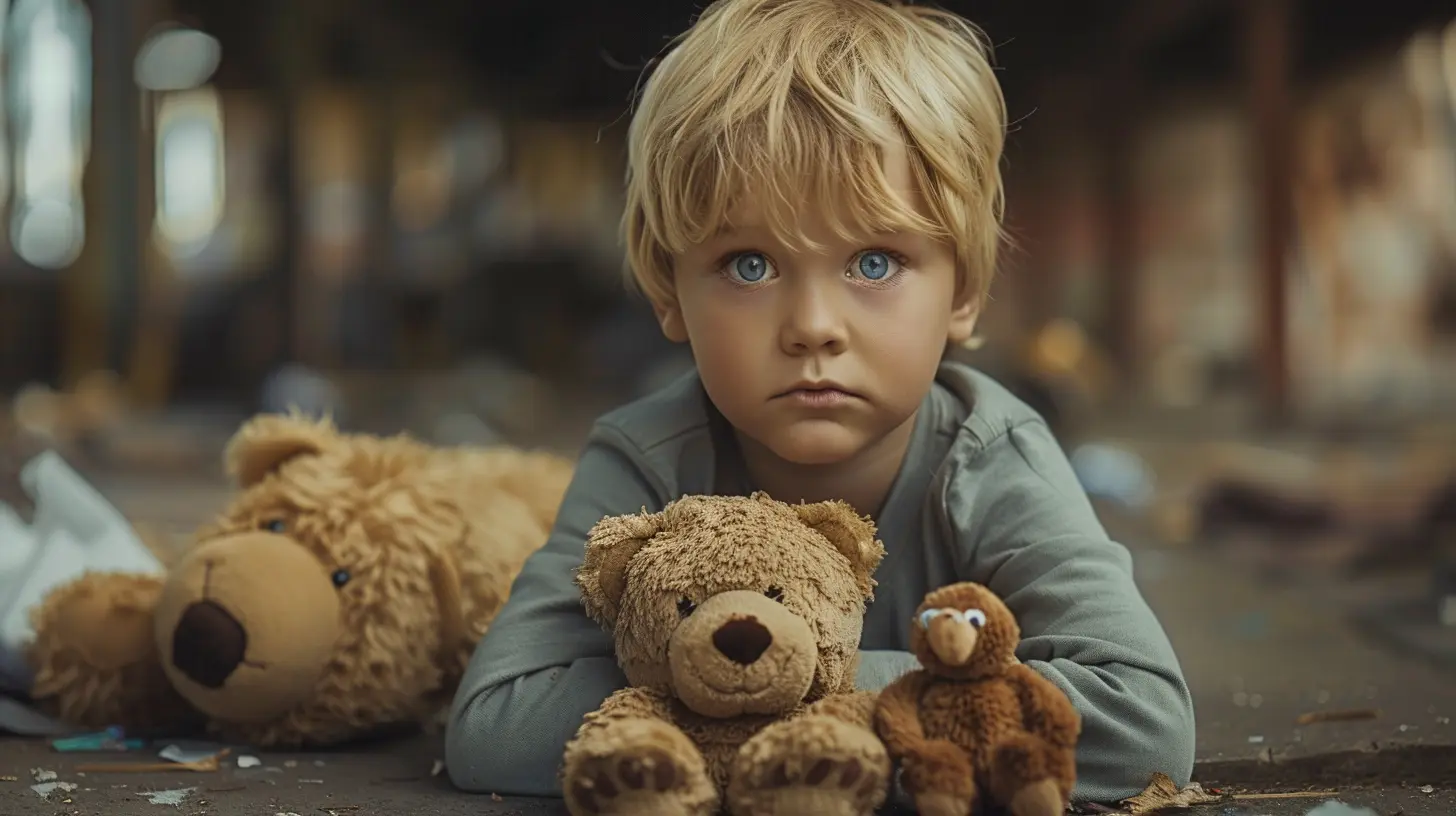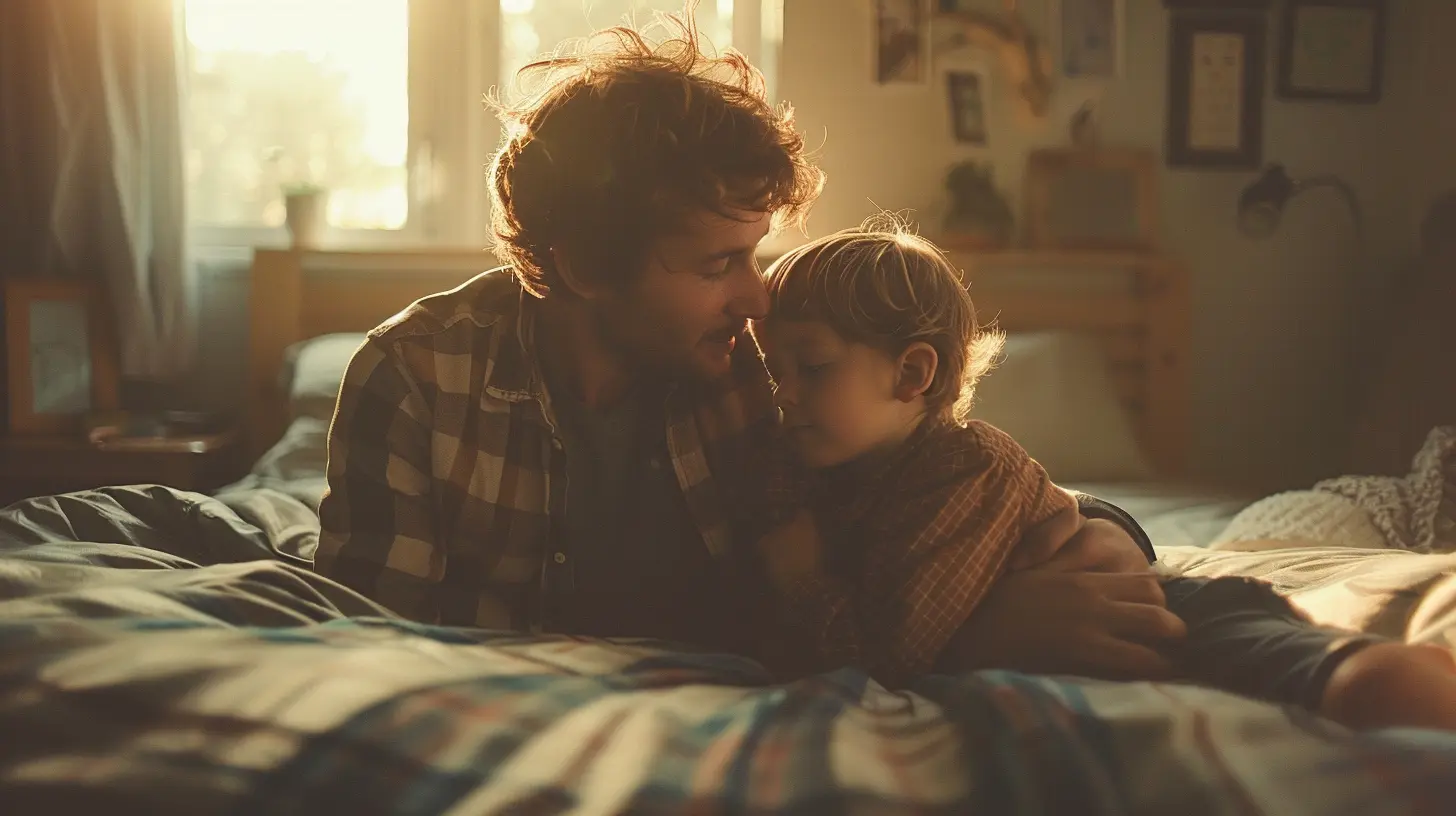What Happens When You’re Always Playing the Rescuer?
18 June 2025
Ah yes, the classic “Super Parent” cape. It’s invisible, always wrinkled, and perpetually flapping in the wind of chaos. You throw it on with pride (and maybe a bit of coffee-fueled desperation). But let’s be real — always rescuing your kids, your partner, your neighbor’s cat, and the guy stuck in line at Target who’s clearly using expired coupons... it's exhausting.
So, what actually happens when you’re always playing the rescuer? Spoiler alert: It’s not all gold stars and grateful thank-you notes. Sometimes, it’s more like being trapped in an eternal episode of a sitcom where you’re the only responsible adult while everyone else is free-falling into mayhem.
Let’s dive deep, with a splash of sarcasm, into the emotionally taxing, mentally draining, and weirdly addictive world of constantly being the one who swoops in to save the day. 
The Rescuer Syndrome: Not a Superpower, Actually a Trap
Okay, first let’s give this thing a name. Rescuer Syndrome. Sounds fancy, right? But really, it’s just a chronic condition where you feel compelled to help — even when no one asked, needed, or heck, even noticed.You probably didn’t even realize it was a thing, because most people applaud you for it. “Wow, you do so much for your kids.” “You’re always there for everyone!”
But behind those comments, you’re a caffeine-filled chihuahua, vibrating with anxiety, juggling PTA meetings, forgotten lunch boxes, and emotional messes that aren’t even your own. 
Signs You Might Be The Resident Family Lifeguard 🛟
Not sure if you're stuck in the Rescuer Role? Here’s a little checklist — if you say "yep" to more than three… welcome to the club, my friend.1. You Answer Calls That Start with “Mom/Dad, I Need…”
Even when you're in the bathroom. Or asleep. Or lying on the floor wondering if laying there forever is an option.2. You Feel Responsible for Everyone’s Feelings
Is your kid mad because you said no to a third popsicle? Somehow it’s your fault. Spouse stressed out? Time to play therapist!3. You Fix Problems Before They Even Begin
You’ve become psychic. You know when someone’s about to have a meltdown and jump in with a snack or a solution before they even blink.4. You Can’t Sit Still When Someone Is Struggling
Oh, you? Having boundaries? That's cute. But no, you dive straight into everyone’s drama like it’s your full-time gig.
Where’s Your Oxygen Mask, Hero?
Ever heard that whole “put your own oxygen mask on first” airline speech? Yeah, in parenting it’s more like “hold your breath while keeping everyone else breathing.”But here’s the thing — rescuing all the damn time means you run out of emotional air REALLY freakin’ fast.
Emotional Burnout is Real (And Ugly)
Constant rescuing leads to emotional burnout faster than a toddler can smear peanut butter on a clean shirt. You’re tired, resentful, and somehow STILL the one expected to do bedtime stories.You're a human, not a vending machine for comfort and solutions. And when nobody’s refilling your emotional balance, the tank hits E real quick.
You Train Them... to Need You. Always. 😬
This one hurts, but hey — if we’re going down, we’re doing it honestly.Here’s the kicker: when you're always stepping in, your kids don’t learn how to not need you. You want them to grow into confident, capable beings, right? Not adults who cry over split almond milk because no one came to fix it for them.
Rescuing Robs Them of Resilience
Every single time you swoop in to tie their shoes, solve their sibling fight, or save them from natural consequences (like forgetting homework), you're teaching them that you're the only one who can handle life.Translation: you’ll still be navigating their crisis at age 34. Cute.
You're Rescuing Others While Drowning Yourself
Here’s the fun paradox — every time you throw someone a life raft, you’re a little more submerged. Because you’re trying so hard to keep everyone else afloat while your own patience, peace, and personal laundry pile are screaming for help.Guilt is the Glue That Keeps This Role Alive
You feel guilty when you don't help. Like, “What if I don’t remind them about their library book and they get a fine?” Yes, because fines are clearly life-ruining.But honestly, guilt is overrated. It's your brain's way of gaslighting you into thinking you're abandoning people when really you're just trying to put on pants and have one coherent thought.
Why Can’t You Just… Stop?
Simple answer: Because being needed feels really good. Like, deeply, disturbingly satisfying.It feeds your identity. Your purpose. You’re the glue holding the family together! The multitasking wizard nobody appreciates until there’s no clean underwear or cereal left!
But here’s the twist — being chronically needed can be addictive. Like a “hero complex” with a side of people-pleasing. Oof.
The Rescuer Triangle You Didn’t Know You Were In 🧠
Let’s talk psychology for a hot second.There’s this thing called the Drama Triangle (calm down, it’s not a Netflix series… yet). It has three roles:
- The Victim: Helpless, overwhelmed.
- The Persecutor: Blamer-in-chief.
- The Rescuer: Fixer, over-functioner, apologizer-on-call.
You cycle through these roles in family dynamics, and guess what? The Rescuer eventually crashes into Victimville when no one gives them a parade. Surprise!
Moral of the story: even when you try to be the hero, you end up feeling like the martyr. Yay?
Breaking Free Without Burning Down the House
So how do you keep your sanity without watching your household turn into Lord of the Flies? Glad you asked.1. Bite Your Tongue (Harder Than You Think)
Let your kid forget their math book. Let your partner figure out how to make dinner while you pretend to be “busy” on the couch (you've earned it).Let people fail, and then don’t race to the rescue. Failure is a better teacher than you’ll ever be.
2. Set Fire to the Guilt (Metaphorically)
Recognize that guilt isn’t a sign you’re doing it wrong — it’s a sign you’re doing something new. And necessary. You aren’t abandoning anyone. You’re making space for their growth… and your sanity.3. Teach Problem-Solving (Instead of Problem-Soothing)
Let’s retire “Let me fix that” and upgrade to “What do you think you can do about it?” Revolutionary, I know. But empowering children and partners to think for themselves? Now that’s good parenting.4. Say No Without a Monologue
You don’t need to justify, over-explain, or write a dissertation. Just a simple “Nope, not doing that today” is enough. And yes, they’ll survive.The Sweet, Sweet Taste of Balance
Once you stop rescuing all the time, you’ll actually notice something weird: your kids start becoming... competent. They solve their own problems. They learn from mistakes. They develop — wait for it — emotional regulation.Also, you might occasionally drink your coffee while it’s still warm. I know, it sounds like witchcraft.
Final Thought: You Can Keep the Cape, But Wear It Less
Being the family rescuer probably started from a place of love. But love doesn’t mean doing everything for everyone all the time. That’s not love — that’s unpaid labor with a side of resentment.You can still be supportive without being the fixer. You can still care deeply without carrying it all. You can sip your wine (or green smoothie or tepid coffee, you do you) and watch your family learn how to function with you, not just because of you.
So, hang up that cape. Or better yet, fold it neatly in the closet next to the “My kid is student of the month” certificates. Take a breath. You’re not their hero anymore — you’re their guide. That’s a promotion worth taking.
all images in this post were generated using AI tools
Category:
Parenting MistakesAuthor:

Austin Wilcox
Discussion
rate this article
2 comments
Andrea Taylor
This article offers valuable insights on the impact of the rescuer role in parenting. Understanding this dynamic is crucial for healthier family relationships. Thank you!
November 8, 2025 at 5:26 PM

Austin Wilcox
Thank you for your thoughtful comment! I'm glad you found the insights valuable for fostering healthier family dynamics.
Elias McAleer
Absolutely loved this article! It’s a refreshing reminder that while rescuing our kids can feel heroic, empowering them to navigate challenges is even more rewarding. Cheers to raising confident, independent little ones! 🌟💖
June 20, 2025 at 4:18 PM

Austin Wilcox
Thank you! I’m glad you found it inspiring—empowering our kids truly makes a lasting impact! 🌟💖


